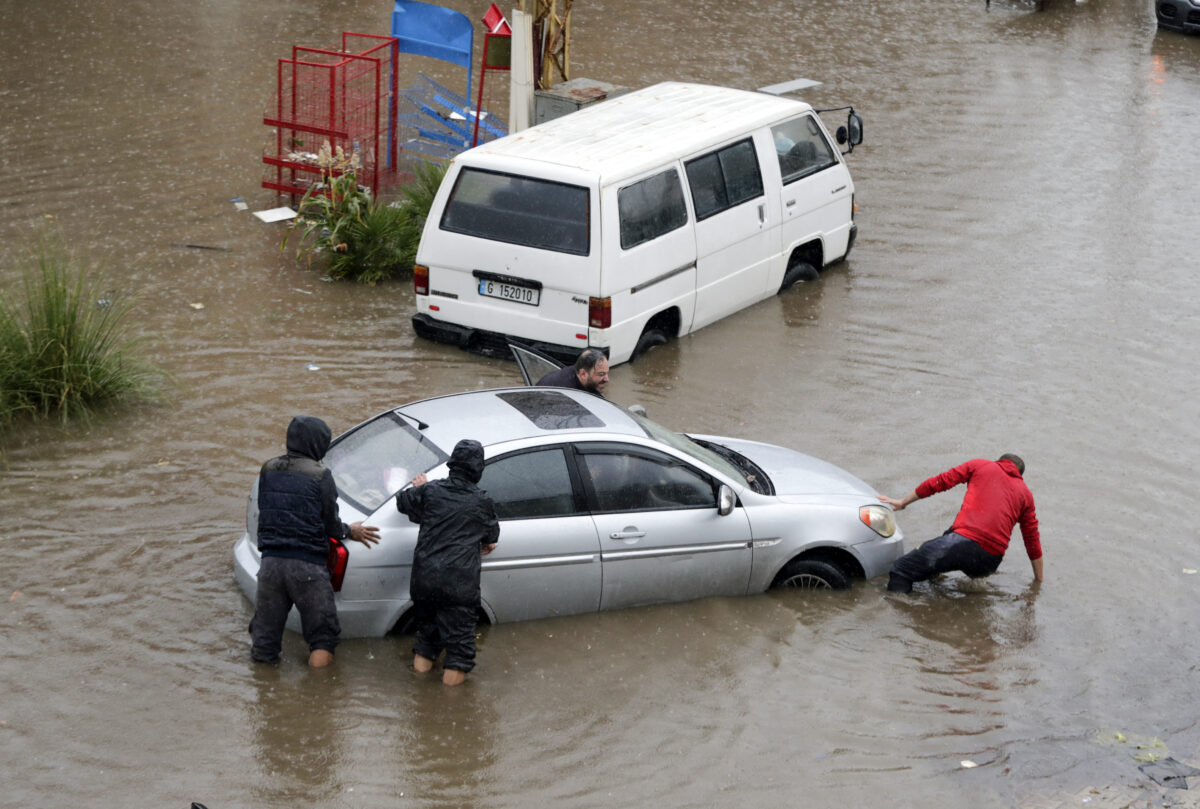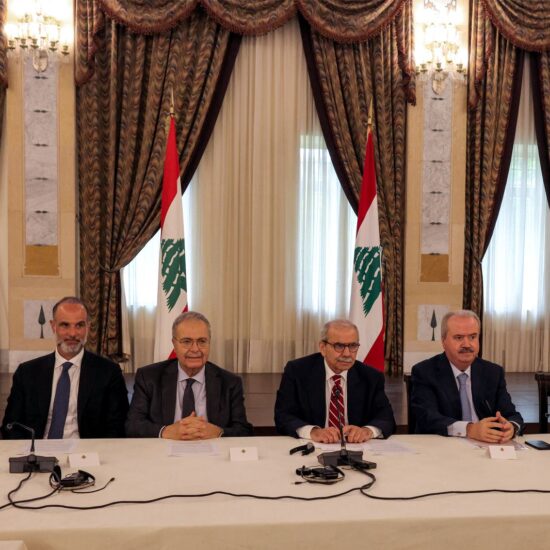
In the outskirts of the Burj al-Barajneh camp in Beirut resides a young Syrian man, who settled in Lebanon back in 2013, offering a clear insight into the misery that rains bring inside the camp—on the flood-prone narrow lanes and the numerous leakages within their poorly built abodes. Ahmad Arnous told NOW that the shabby infrastructure, the meager standard of living, soaked electrical wires, and unpredicted flooding pose a serious threat to their lives. Unfortunately, year after year, these hazards continue to affect the refugees with no influx of better infrastructure available.
In many areas, poor maintenance of infrastructure and drainage systems is causing substantial disturbances in citizens’ daily routines with significant material loss after heavy rain.
“The rain is inevitable; we cannot stop nature. It is supposed to be a blessing to the ground, but every time we face countless troubles and material damages,” Ziad Nehme, who owns a mini-market grocery shop in Jal El Dib, told NOW.
“It is a frustrating reality; our appliances and precious belongings become casualties of water damage, leaving us with no choice but to discard our flood-soaked food that’s too hazardous for consumption and too damaged to sell. Despite our losses, seeking compensation or a resolution to our problem rarely happens,” Nehme added.
The 16th of October marked the collapse of a building in Mansourieh, allegedly triggered by the repeated flooding of its basement during rainfall. Reports indicate that foundation weakness may be attributed to the moist soil that dampens the building’s base. It was last reported that 6 people were confirmed dead.
Engineer Rached Sarkis, appointed by the Governor of Mount Lebanon to oversee the incident of the Mansourieh building collapse said, “water is the real enemy of the concrete that is already dilapidated.”
The Factors
Waste Management: The garbage issue in Beirut exacerbates the problem of flooding. Carole Eid, an expert in waste management and recycling collaborating on multiple UNDP initiatives, highlights that individuals often dispose of their waste into the river, leading to a blockage in the drainage system. This results in the accumulation of debris at low bridge points, hindering the flow of water through underground drainage pipes.
Garbage has consistently plagued Lebanon without significant progress. The failure to address the garbage crisis has garnered global attention in recent years. Lebanon’s sewage and drainage systems are impacted by waste, causing annual floods in coastal areas, especially during intense rainfall.With almost four years of economic turmoil, political uncertainty, and weakened institutions, the country is ill-prepared for potentially challenging winter conditions.
While a few individual recycling initiatives have emerged, the overwhelming majority of Lebanon’s rubbish ends up in coastal landfills or rivers due to individual actions.
To tackle the waste crisis, experts like Eid recommend implementing a thorough, long-lasting plan by initiating the preliminary procedures of the waste hierarchy. They propose minimizing waste, promoting the recycling of items, and establishing practical sustainability guidelines.
“Blocked drains prevent the evacuation of rainwater, the negligence in this issue is unacceptable, the responsible administrations always offer excuses and trade blame on one another,” Eid told NOW.
According to Eid, there is a problematic combination of high levels of corruption and minimal productivity within the ministries.
Wasting resources and mismanagement: The task of maintaining highways falls under the domain of the Ministry of Public Works, while the upkeep of inland roads is managed by local municipalities. As a result of the economic turmoil, the Minister of Public Works and Transportation encountered challenges when trying to fund renovation projects.
“Over time, the sum of money poured into improving our infrastructure speaks volumes. Resource deficiency is not an issue here, we can get a flush of foreign funding, plus we have top-notch experts and talents that can execute competent projects,” said Eid.
In addition, there are certain regions beyond the jurisdiction of the Ministry, with only major highways falling under their purview, according to a spokesperson from the Ministry of Public Works.
Poor and minimal maintenance: Subsurface pipelines must undergo regular maintenance which typically encompasses several activities, according to Alaa Harfoush, an infrastructure engineer with experience in water and wastewater projects. “The regular maintenance includes clearing out obstructions or impediments resulting from clogged trash and sediments and inspecting the tunnels for cracks and signs of non-artificial degradation to pinpoint any repair needs,” Harfoush told NOW.
“This kind of work needs to take place regularly but it is clear that the drainage system is left untouched before the winter season.”
According to activists, the source of chaos lies in governmental corruption and blockade, leading private companies to work with politicians to contend for profitable agreements.
Solution
All the experts interviewed in this piece unanimously concur that addressing Lebanon’s flooding issue effectively requires a joint and multifaceted approach. The necessary measures would involve a combination of proper arrangements for land use management, transportation systems, and sub-surface drainage facilities, coupled with standardized inspection and upkeep mechanisms. The success of this solution hinges on the active participation of various stakeholders, including local government units, the Ministry of Energy and Water, municipalities under the Ministry of Public Works, sanitation providers, and members of the community.
Undoubtedly, maintaining clean sewerage lines is not solely the responsibility of the government and waste collectors, as stated by Harfoush. “As citizens, we must refrain from discarding items into the drainage network, avoid littering the streets, and actively support the community by reporting areas in need of attention. We are responsible for this crisis too,” Harfoush emphasized.
Rodayna Raydan is a Lebanese-British journalist. You can follow her on Twitter @Rodayna_462








